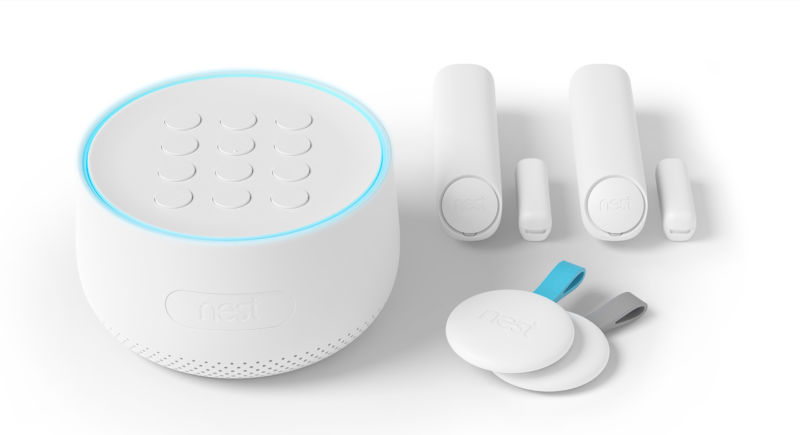
Google's Nest smart home brand is in hot water this week after news surfaced (via Daring Fireball) that its home security system, Nest Secure, shipped with an undisclosed microphone. Google activated the microphone earlier this month for Google Assistant functionality, but that meant the device sat in users' homes for up to a year as an unknown potential listening device.
Nest Secure launched last year as a $500 home security system. It's just a collection of door, window, and motion sensors, along with a small desktop box that acts as a hub for the devices and a security code keypad. It has a speaker for alarms and other sounds, but it isn't something you would ever expect to have a microphone.
Google gave a statement to Business Insider yesterday, saying, “The on-device microphone was never intended to be a secret and should have been listed in the tech specs. That was an error on our part.” According to the company, "the microphone has never been on and is only activated when users specifically enable the option.”
Some consumers are averse to products with microphones in them, given that it has been possible for the FBI, hackers, and other savvy entities to exploit those devices and use their microphones for spying.
It's hard to think of a current Google device that doesn't have a microphone. For Nest, there are microphones in the security hub, cameras, door bells, and smoke detectors (yes, even the smoke detectors). Google builds microphone-equipped smart speakers and smart displays, along with phones, tablets, and laptops. It's also working on getting microphones into TV sound bars and in televisions themselves.
A Star Trek-like voice command-enabled future means putting a microphone in just about everything, but that means it's critical that companies disclose these microphones and make sure the devices are kept up-to-date and secure.
reader comments
202